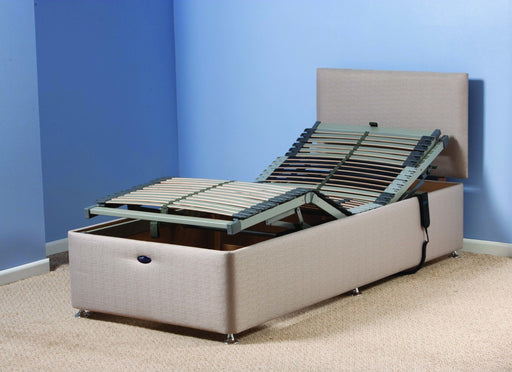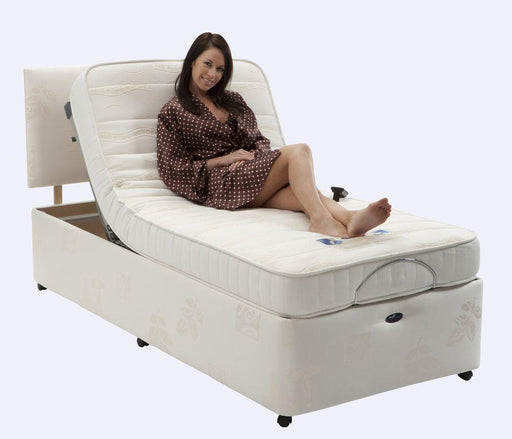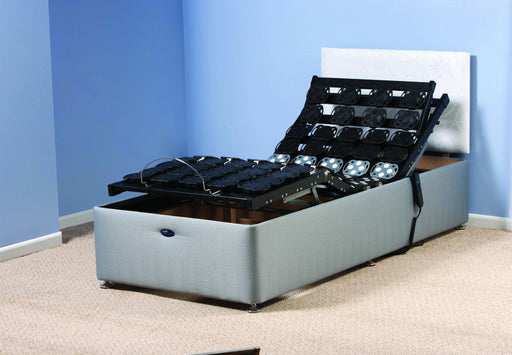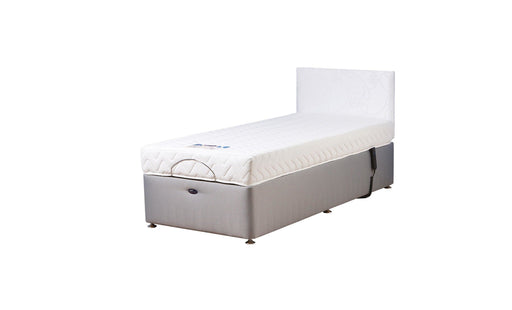A home care bed provides essential comfort and support for individuals who require extended periods of bed rest or have limited mobility. These beds are designed to promote independence, safety, and well-being while catering to specific care needs. In our home care bed collection, we offer a range of options to suit different requirements. Check out the different types of beds available below:
Different Types of Home Care Beds
Adjustable Electric Beds:
Adjustable electric beds offer a high level of customization, allowing users to adjust the positioning of the head, foot, and overall height of the bed with the touch of a button. These beds come equipped with a motorized mechanism that ensures smooth and effortless adjustments.
Considerations when buying an adjustable electric bed:
- Range of Adjustability: Assess the range of adjustments available to ensure it meets your specific needs, such as multiple recline positions or adjustable leg height.
- Control Options: Look for beds with user-friendly controls that are easily accessible, whether they are wired or wireless.
- Safety Features: Consider features like anti-trap mechanisms, emergency lowering function, or lockout controls to enhance safety and prevent accidents.
Profiling Beds:
Profiling beds, also known as hospital beds, offer multiple adjustment options to optimize comfort and facilitate care tasks. These beds typically include adjustments for the head, foot, and height, as well as features like adjustable side rails and mattress platforms.
Considerations when buying a profiling bed:
- Adjustment Range: Evaluate the range of adjustments available, including the angles for head and foot positioning, to ensure it meets your specific requirements.
- Side Rails: Consider whether the bed comes with adjustable side rails that can be easily raised or lowered, providing safety and support.
- Weight Capacity: Assess the bed's weight capacity to ensure it can safely accommodate the user's weight.
Bariatric Beds
Bariatric beds are designed to support individuals with higher weight capacities. These beds offer wider frames, reinforced structures, and increased weight capacities compared to standard home care beds.
Considerations when buying a bariatric bed:
- Weight Capacity: Ensure that the bed's weight capacity exceeds the user's weight to provide optimal support and safety.
- Frame Construction: Evaluate the bed's construction and materials to ensure it is sturdy and durable, capable of handling higher weight loads.
- Mattress Options: Consider the availability of specialized bariatric mattresses designed to provide adequate support for larger individuals.
Low-Level Beds:
Low-level beds, also known as floor-level or low-height beds, are designed to minimize the risk of falls and injuries. These beds are closer to the ground, reducing the height of the sleeping surface for easy accessibility.
Considerations when buying a low-level bed:
- Accessibility: Evaluate the bed's height to ensure it is suitable for easy entry and exit, especially for individuals with mobility challenges or those at risk of falls.
- Safety Features: Look for features like floor-level position locking mechanisms or padding around the bed frame to enhance safety.
- Mattress Compatibility: Consider the compatibility of the bed with standard or specialized low-level mattresses to ensure proper fit and support.
Companion Beds
Companion beds, also known as dual or double profiling beds, provide an innovative solution for individuals who require care and support while sharing a bed with a partner or caregiver. These beds feature independent adjustment capabilities on each side, allowing customization for both occupants.
Considerations when buying a companion bed:
- Independent Adjustment: Ensure that the bed offers individualized adjustment options on each side to accommodate different sleep preferences and care needs.
- Mattress Compatibility: Consider the availability of mattresses specifically designed for companion beds to ensure optimal support and comfort for both occupants.
- Size and Weight Capacity: Assess the bed's size and weight capacity to ensure it can comfortably accommodate both users.
Which Type Of Home Care Bed Should I Buy?
A home care bed plays a vital role in providing comfort, support, and convenience for individuals with mobility challenges or those requiring extended bed rest. When choosing a home care bed, consider factors such as adjustability options, safety features, weight capacity, mattress compatibility, and specific care needs. If you are still unsure which bed is right for you, get in touch and we may be able to help.








